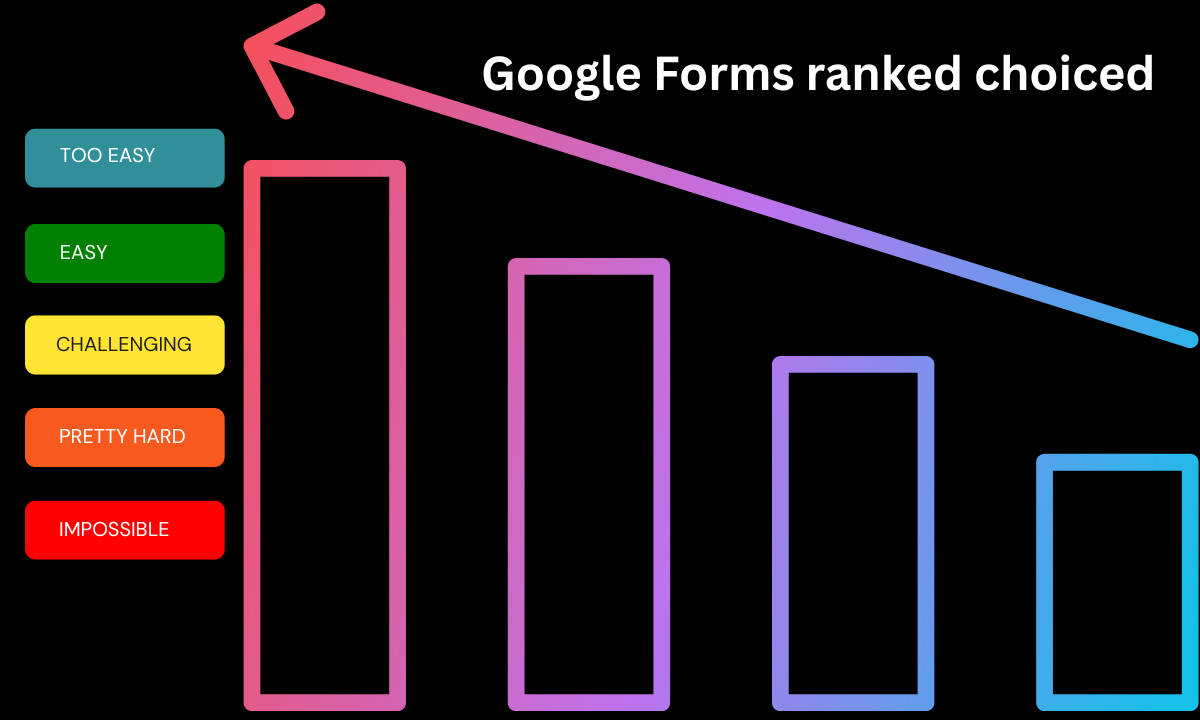Introduction:
Business Intelligence:
Effective business intelligence (BI) is indispensable in managing the competitiveness and growth-oriented processes of optimising operations within the utility industry which has become ever more dynamic and complex. In the past utility services focused on the provision of basic services such as electric, water and gas services while at the same time maintaining huge infrastructural networks. However, thanks to the digital world, it has become clear that data is of equal importance as energy. Such is business intelligence where utility companies are able to synthesise and comprehend large volumes of data. The insights thus gained are used to fine-tune processes, enhance customer interactions and reduce the costs of operations.
What is Business Intelligence in the Utilities Sector?
Business intelligence is a collection of processes and tools for collecting, storing, and presenting information for effective managerial decisions and consideration of strategies. In the case of utilities, such information can be fed by a number of other sources as smart metres, IoT sensors, customer activities and interactions, and grid systems.Such is the efficacy of BI tools that this data ceases to become wastage and is put into effective utilisation through analysis and forecasting that supports the utility company in enhancing work processes, estimating the needs of clients, and controlling resources.
The utilities industry along with the installation of smart grids and digital metres has witnessed an unprecedented increase in the level of data created. BI enables utility organisations to interpret the data leading to smart decisions, which range from energy allocation to customer satisfaction management. BI’s reach is far and wide impacting several areas and thus allowing utilities to compete in a complex and regulated market.
Advantages of Business Intelligence for Utilities
Operational Efficiency and Maintenance The possibility to process and interpret data as it is collected is extremely useful in enhancing operational efficiency. This is because the companies in the utilities sector operate and own large infrastructures, such as power lines, pipelines, and networks of water which need regular inspections and repairs. BI tools allow for the integration of asset monitoring with maintenance of assets, an aspect known as Predictive Maintenance. This helps the utility avoid incurring losses from damages or failures by fixing problems before challenges escalate.
Predictive Maintenance As An Example and Avoiding the Practice of Waiting for a Pump, for Instance, or a Power Transformer to Fail. It Is Possible to Use Predictive Analytics to Identify the Symptoms of a Problem and Take Action by Carrying Out Repairs. This Means That Machines Will Have Water Supply and Will Operate for Longer, Thermal Power Plants Will Not Be Idle Due to Any Managerial Hold Up, And Avoidable Costs Of Maintenance Will Be Reduced. In addition Business Intelligence assists in enhancing resource management; thus, it enables utilities to use human labour and other equipment where needed and when demanded without wastage.
Demand Enterprise and Resource Forecasting One of the strongest constraints that utility companies have to deal with is subordinate them with demand forecasting. These variables have to be well managed so as to maintain harmony in production without allowing for excess or deficit. Business Intelligence (BI) instruments analyse past usage trends, information about the grids in present time, and some factors like weather to allow forecasts of energy or water consumption.
When utilities manage demand accurately, they are able to modify the production schedule so that the desired electricity is only produced within the determination of consumption. BI devices, in addition, allow energy companies to add fluctuating wind and solar power into the grid. This calls for better resource management and energy utilisation within the grid.
Understanding Customers and Incorporating their Interests Customers these days are looking forward to a more personalised type of service even from utility providers. BI allows companies to go through historical data analytics in order to appreciate the usage behaviour, trends and patterns of their customers. This helps the utilities to provide additional services such as energy saving tips, offering appropriate plans, customised usage reports to enable consumers control and reduce their usage of the services.
Business intelligence tools can also categorise customers regarding their level of energy consumption or billing cycles thus allowing utilities to devise advertising strategies or specific campaigns to different groups of customers. In addition, BI also offers understanding regarding the issues and enhancement of the customer experience by addressing issues such as customer complaints and service delays.
Issues of regulatory compliance and sustainability In the utilities industry, the Regulatory compliance is a significant aspect.Likewise, BI plays a contributory role in enabling utility companies to observe such regulatory obligations by facilitating the provision of correct and on time information for regulatory reporting. Be it emissions management, water aqueduct monitoring, or even controlled blackouts, Bi applications deal with data generation and collection for such activities hence ensuring regulatory compliance by the respective utilities.
Sustainability has become an important aspect of modern utilities too. As organisations are increasingly urged to cut down on carbon emissions, BI has the ability to monitor the incorporation of renewable energy as well as to suggest more ways in which operations can be improved so as to meet environmental objectives. BI technologies such as, for instance, road level energy analysis, can also help minimise losses in efficiency by inductive energy distribution monitoring and locating discrete defects which in turn aids in the green revolution of utility systems.
Financial Planning and Risk Management It is a known fact that Utilities operate in a capital-intensive environment. This therefore means that the firm’s financial soundness is very important. Business intelligence tools aid in ensuring efficient financial planning as they provide information on operational costs, revenue generation, and their returns on investment. Business defined these implications of bi strategy to help utility companies design financial models that incorporate availed data in estimating the ripening stage of a business and qualifying areas to be cut down costs.
BI also supports risk management, which is an important aspect. In providing utility services, companies are exposed to risks such as the fluctuation of the energy market, natural catastrophes, or breakdown of facilities. That is when BI technologies come into play regarding operating risks where the risks are examined based on the existing market, surroundings, and performance of assets – to give a heads up on when to expect such risks. By predicting possible threats, utilities are able to take active measures in averting the threat to their facilities and the upholding of sustained service.
The Promise of Business Intelligence within the Utilities Sector
What’s more, the future of business intelligence in the utilities industry remains promising, thanks to the introduction of artificial intelligence and machine learning (ML) which is bound to increase the degree of analytics.
Utility companies will have the ability to deal with advanced datasets efficiently within a shorter period improving innovation and performance. The Business Intelligence (BI) solutions based on Artificial Intelligence (AI) will also facilitate improved decision making in organisations allowing them to deal with the dynamics of the energy demand, issues of equipment breakdowns or even concerns from customers as they arise.
As the utilities industry progressively expands the use of renewable energy sources and smart grid systems, so will the business intelligence function. BI will become critical in managing distributed energy resources, facilitating the integration of renewables in the grid, and helping utilities achieve their sustainability objectives.
Frequently Asked Questions (FAQs) About Business Intelligence
General Questions
1. What is Business Intelligence (BI)?
Business Intelligence (BI) refers to the process of collecting, analyzing, and presenting business data to support better decision-making. It involves technologies, strategies, and tools that help organizations turn raw data into actionable insights.
2. Why is Business Intelligence important?
BI is crucial for improving efficiency, identifying market trends, enhancing customer experiences, reducing costs, and making data-driven decisions that lead to business growth.
3. How does Business Intelligence work?
BI collects data from various sources (databases, applications, spreadsheets), processes it through data warehouses and analytics tools, and presents insights using dashboards, reports, and visualizations.
4. Who uses Business Intelligence?
BI is used by executives, managers, analysts, and business professionals across various industries, including finance, healthcare, retail, manufacturing, and technology.
Business Intelligence Tools and Technologies
5. What are the key components of Business Intelligence?
The main components of BI include data warehousing, data mining, reporting, dashboards, business analytics, and performance management tools.
6. What are some popular Business Intelligence tools?
Some well-known BI tools include:
- Microsoft Power BI
- Tableau
- Qlik Sense
- SAP BusinessObjects
- Google Data Studio
- Looker
- IBM Cognos Analytics
7. How do BI dashboards work?
BI dashboards provide a visual representation of key business metrics and performance indicators, making it easier for users to interpret data and track business trends in real time.
8. What is data warehousing in BI?
A data warehouse is a centralized repository that stores structured data from multiple sources. It enables efficient reporting, querying, and analysis in BI processes.
9. What is the difference between Business Intelligence and Business Analytics?
Business Intelligence focuses on descriptive and diagnostic analytics (what happened and why), while Business Analytics includes predictive and prescriptive analytics (what will happen and how to improve outcomes).
Applications of Business Intelligence
10. How does BI help in decision-making?
BI provides real-time insights, trends, and forecasts, helping businesses make informed strategic decisions, optimize operations, and identify new opportunities.
11. How is BI used in finance?
In finance, BI helps with risk assessment, fraud detection, budget planning, and investment analysis by processing large volumes of financial data for better forecasting and compliance.
12. How does BI benefit marketing teams?
BI helps marketers analyze customer behavior, track campaign performance, optimize digital marketing strategies, and enhance customer segmentation.
13. What role does BI play in retail?
Retail businesses use BI to manage inventory, analyze sales trends, personalize customer experiences, and optimize pricing strategies.
14. How does BI impact supply chain management?
BI helps improve supply chain efficiency by tracking shipments, optimizing logistics, managing supplier relationships, and forecasting demand.
15. How is BI used in healthcare?
Healthcare organizations use BI to analyze patient data, track hospital performance, predict disease outbreaks, and improve treatment efficiency.
Challenges and Future of Business Intelligence
16. What are the common challenges in implementing BI?
Challenges include data integration issues, high implementation costs, lack of skilled professionals, data security risks, and resistance to change from employees.
17. How can businesses overcome BI implementation challenges?
Organizations can overcome challenges by investing in proper training, choosing scalable BI tools, ensuring data governance, and fostering a data-driven culture.
18. How does AI impact Business Intelligence?
AI enhances BI by automating data analysis, generating predictive insights, and enabling natural language processing for better user interactions.
19. What is the future of Business Intelligence?
The future of BI includes more advanced AI-driven analytics, real-time data processing, improved data security, and self-service BI tools that empower non-technical users.
Conclusion
Business Intelligence plays a vital role in helping organizations turn raw data into meaningful insights for strategic decision-making. By leveraging BI tools and techniques, businesses can improve efficiency, enhance customer experiences, and gain a competitive edge. Despite challenges such as data integration and security concerns, advancements in AI and machine learning are set to further revolutionize the BI landscape. As organizations continue to embrace data-driven strategies, BI will remain an essential asset for driving growth, innovation, and long-term success.











